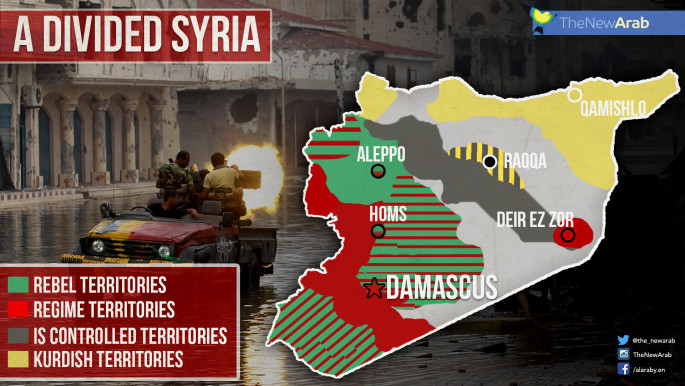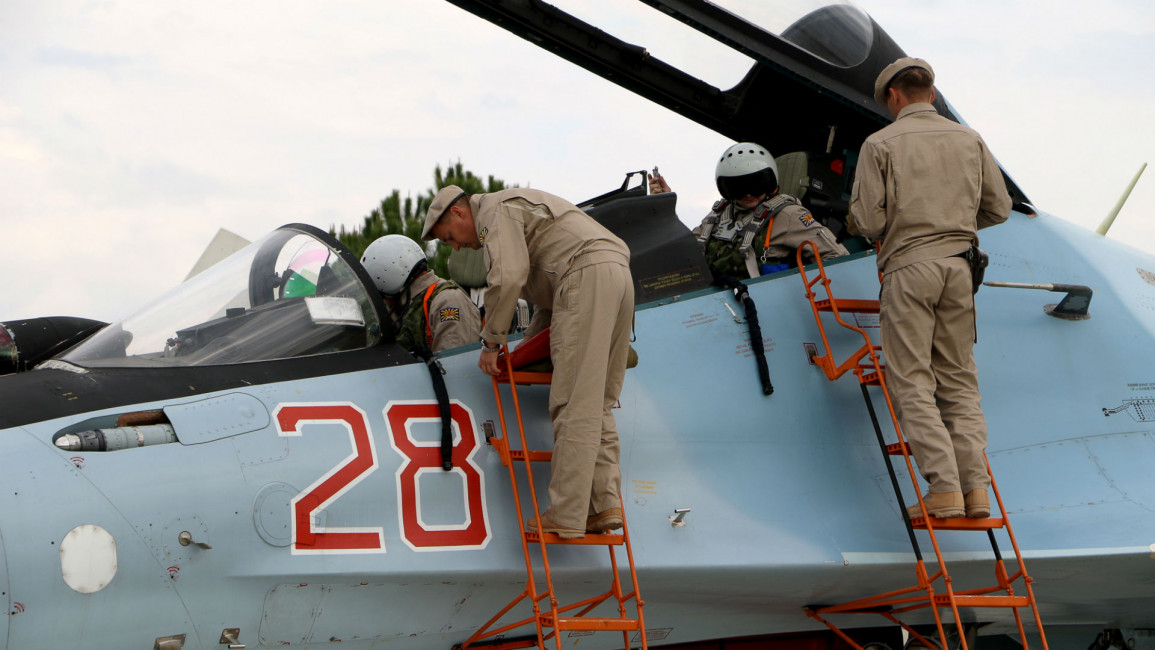Russia grounds war planes as Syria ceasefire continues
Russia's Foreign Minister Sergei Lavrov and his US counterpart both "hailed" the first day's ceasefire, Moscow said, and both spoke by phone about ways to ensure the truce holds.
Lt. Gen. Sergei Rudskoi from the Russian military said that Moscow decided to ground its aircraft in Syria as part of a ceasefire agreement in Syria.
But Rudskoi warned that Russian air raids against Islamic State group and al-Nusra Front targets would continue despite the decision to halt sorties by its Syrian-based war planes for now "to avoid any possible mistakes".
The military commander said that Russia and the US had set up a hotline to monitor the ceasefire and to respond quickly to any breaches of the truce.
Rudskoi added that Washington also shared maps with Russia's defence ministry detailing areas that rebel groups signed up to the truce operate in.
Russia has also set up a coordination centre at Hemeimeem airbase in Latakia, he said.
Sixty one Russian officers have been tasked with negotiating with Syrian rebel groups in the truce, and to coordinate with the delivery of humanitarian air, Moscow claimed.
Rudskoi said 17 rebel groups had contacted Russia to say they will adhere to the truce.
 |
| [click to enlarge] |
However, Russia's announcement that it will continue to target anti-Assad forces that have not signed up to the truce has sparked fears of a premature end to the ceasefire.
Moscow has always claimed that its air raids in Syria target "terrorist groups" such as IS.
But analysts say that the vast majority of bombs have hit anti-regime rebel areas, many of whom are classed as moderate and at war with the extremist group.
They are also seen by many as posing the greatest overall threat to President Bashar al-Assad's rule.
Russian bombing was vital to the Syrian regime's offensive in Aleppo during the last brief ceasefire in February.
Few will also forget that Moscow's warplanes have killed thousands of civilians in Syria.
They have also hit civilian infrastructure in opposition-held Syria, including schools and hospitals.
UN envoy for Syria said that the situation so far remained "quite reassuring" although rebel groups alleged that some regime units had ignored the ceasefire.
Lt. Col. Fares al-Bayoush, commander of the 1,300-strong Fursan al-Haq Brigade, told The Associated Press that his group and others affiliated with the mainstream Free Syrian Army are so far abiding by the truce.
"If they continue with these violations we will be forced to retaliate accordingly," he said by phone from southern Turkey.
However, he added that the cease-fire has sharply reduced government attacks across northern Syria, where his group is based.
Agencies contributed to this report.



